Introduction
The Companies Act 2017 is the statute that governs company law in Pakistan. Its official name is “Companies Act, 2017” and it was notified to be promulgated with immediate effect on 30.05.2017 and published in the official gazette on 31.05.2017 as Act No. XIX of 2017 (the Act).
Previously the company law in Pakistan was governed through the Companies Ordinance, 1984 (1984 Ordinance), now repealed except for the provisions related to Non-banking finance companies (NBFC) contained in Part VIIIA. For provisions related to NBFCs, the 1984 Ordinance is still in force.
The Act came into force with immediate effect except for Section 456. This section deals with the acceptance of advances by real estate companies engaged in real estate projects. It will come into force upon notification by the Federal Government or any authority or person authorized by the Government. Later this section was omitted through an amendment ordinance in 2020. However, the omission was not approved by the Parliament, therefore the section is still part of the law but not effective.
Overview
- Introduction
- Overview
- The objective of the Companies Act 2017 SECP
- Scheme of Companies Act 2017 Pakistan
- Division of the Companies Act 2017
- Forms Prescribed by Rules and Regulations Under the Companies Act 2017
- Schedules to Companies Act 2017
- Rules Issued or deemed to be issued under the Companies Act 2017
- Regulations issued or deemed to be issued under the Companies Act 2017
- Ending Note
The objective of the Companies Act 2017 SECP
The main objective to replace the previous law with this new law was to:
- facilitate corporatization and promote the development of the corporate sector
- encourage the use of technology and electronic means in the conduct of business and regulation
- regulate corporate entities to protect the interests/rights of shareholders, creditors, other stakeholders, and the general public
- promote principles of good governance and safeguarding minority interests in corporate entities
- provide an alternate mechanism for expeditious resolution of corporate disputes and matters arising out of or connected therewith
The Act provides for all aspects of company law, from the formation of a company to winding. It also contains provisions for the management, conduct, and governance of companies. Further, the Act provides guidance and mechanism for dispute resolution through mediation, arbitration, and the courts. The Act has an overriding effect concerning all matters of companies.
Scheme of Companies Act 2017 Pakistan
The Act has been divided into Thirteen (13) parts, each discussing a different aspect related to companies.
The Act also contains or provides through rules and regulations (subordinated legislation) certain schedules, tables, forms, and general rules to govern the law and regulate the companies.
Division of the Companies Act 2017
As discussed, the Act has 13 parts containing legal provisions on different aspects. A brief of the contents of each part is given below:
Part I – Preliminary
|
|---|
Part II – Jurisdiction of Court
|
|---|
Part III – Powers and Function of the Securities and Exchange Commission of Pakistan
|
|---|
Part IV – Incorporation of Companies and Incidental Matters
|
|---|
Part V – The prospectus, Allotment, Issue, and Transfer of Shares and Other Securities
|
|---|
Part VI – Registration of Mortgages and Charges
|
|---|
Part VII – Management and Administration
This part contains provisions related to the management of the company and the role of shareholders, the board of directors, the Chief Executive Officer (CEO), and other officers of the company. Further, this part provides details on contracts, accounts and audits, dividends, structure, and functions of the board, CEO, and other officers. The requirements for meetings (of board and members) and procedures are also provided in this part.
Provisions related to members
Meetings and Proceedings
Provisions related to Directors
Provisions related to the CEO
Company Secretary and Share Registrar
Provisions regarding Investments and Contracts
Provisions related to Accounts
Dividends
Audit and Auditors
Powers of Registrar
Investigation and Related Matters
Powers of Court
|
|---|
Part VIII – Mediation, Arbitration, Arrangements, and Reconstruction
|
|---|
Part IX – Prevention of Oppression and Mis-management
|
|---|
Part X – Winding Up
Preliminary
Winding up by Court
Petition for winding up
Power of court hearing petition
Official liquidators (OL)
Enforcement of Order
Provisions applicable to creditors in Voluntary Winding Up
General Provisions for all Kinds of Winding Up Proceedings
Winding up under Court Supervision
Proof and Ranking of claims
Effect of Winding Up on Antecedents and other transactions
Offenses antecedent to or during Winding up
Supplementary provisions as to Winding-up
|
|---|
Part XI – Winding up of Unregistered Companies
|
|---|
Part XII – Companies Established Outside Pakistan
Establishment of place of business in Pakistan
Prospectus related to Foreign Securities
|
|---|
Part XIII – Schedules, Tables, Forms, and General Rules
General Provisions
Registration offices and fees
Legal Proceedings and Offenses
Schedules, Table, Forms, General Rules
|
|---|
Forms Prescribed by Rules and Regulations Under the Companies Act 2017
The Companies Act 2017 prescribes many forms to be submitted to SECP. The companies are required to file various forms for intimating changes in the company, to report compliance with regulatory obligations, and to submit information.
Some forms and returns are filed periodically and some forms are event-based.
Schedules to Companies Act 2017
| Schedule | Contents |
|---|---|
| First Schedule |
|
| Second Schedule |
|
| Third Schedule | Classification of Companies -Accounting Framework for
|
| Fourth Schedule | Disclosure requirements as to financial statements of listed companies and their subsidiaries
|
| Fifth Schedule | Disclosure requirements as to financial statements of non-listed companies and their subsidiaries
|
| Sixth Schedule |
|
| Seventh Schedule |
|
| Eighth Schedule | Direct complaint to the court by the commission, registrar, member, or creditor in case of certain offenses |
Rules Issued or deemed to be issued under the Companies Act 2017
As mentioned above, the Companies Act 2017 is not the only piece of legislation that governs company law in Pakistan. The Act empowers the Federal government to make rules to carry out the purpose of the Act. Since the Act has replaced the 1984 Ordinance, the rules made by the repealed Ordinance are still effective as any rules issued under the Act.
Several rules have been issued on different subjects to provide details, subject to provisions of the Act. Currently, rules on the following subjects are in force:
- Asset-backed Securitization
- Audit of Cost Accounts
- Buyback of Shares
- Companies Court
- Corporate Governance of Public Sector Companies
- Employees Stock Option Scheme
- Investment of Employees’ provident fund
- Invitation and Acceptance of deposits by companies
- Issue of Capital
- Management by Administrator
- Rehabilitation of Sick Industrial Units
- Variation in Rights and Privileges of Shareholders
Regulations issued or deemed to be issued under the Companies Act 2017
Besides the rules, the Companies Act 2017 empowers the SECP, being a regulator, to issue regulations for carrying out the purpose of the Act. The SECP, under the Companies Act 2017 and the 1984 Ordinance, has issued regulations on the following subjects:
- Asset-backed Securitization
- Auditors Reporting Obligations
- Buy of Shares by Companies
- Charitable and Non-profit Organizations
- Code of Corporate Governance
- Collateral Management Companies
- Distribution of Dividends
- Foreign Companies
- Further Issue of Capital
- General Provisions and Forms
- Group Companies Registration
- Incorporation
- Investment in Associated Companies or Associated Undertakings
- Investment of Employees Contributory Funds
- Issuance of Convertible Debt Securities
- Issue of Commercial Papers
- Maintenance and Audit of Cost Accounts
- Manner and Selection of Independent Directors
- Mediation and Conciliation
- Postal Balloting
- Private Placement of Sukuk
- Provisional Managers and Official Liquidators
- Registration of Intermediaries
- Registration Offices
- Related Party Transactions and Maintenance of Related Records
- Shariah Advisors
- Shariah Governance
- Unclaimed Shares and Dividends
Ending Note
Hope you have got a fair holistic idea of what the Companies Act 2017 is all about and how it governs and regulates the companies in Pakistan. In the coming articles, we will discuss specific topics in detail to understand the application and effect of the Act on companies in Pakistan.


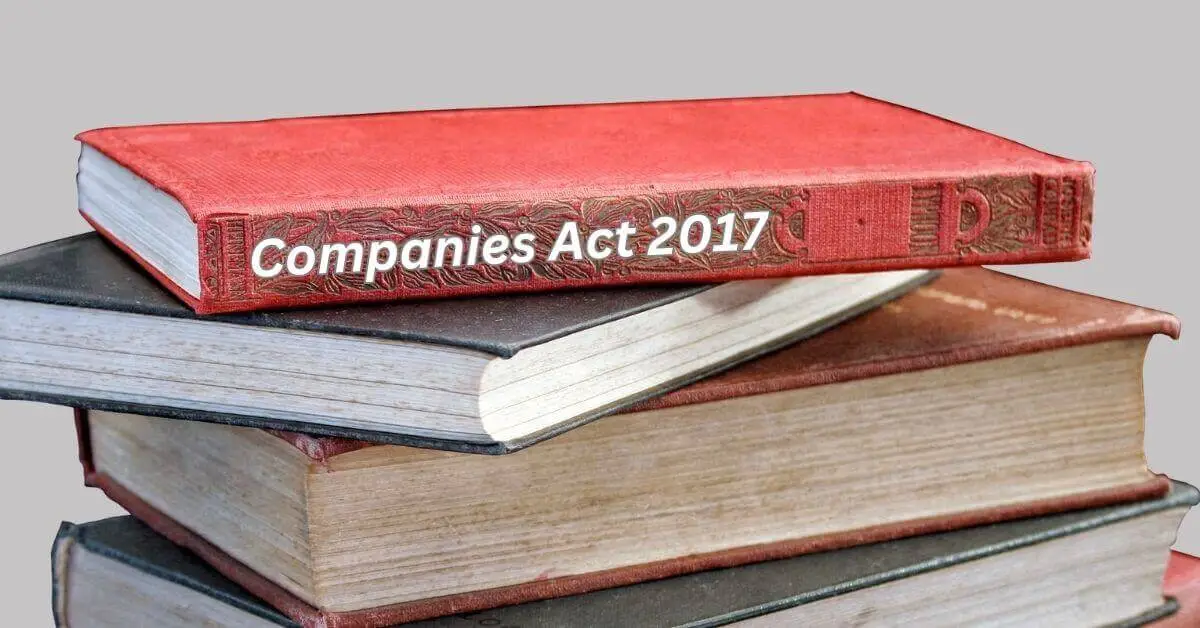
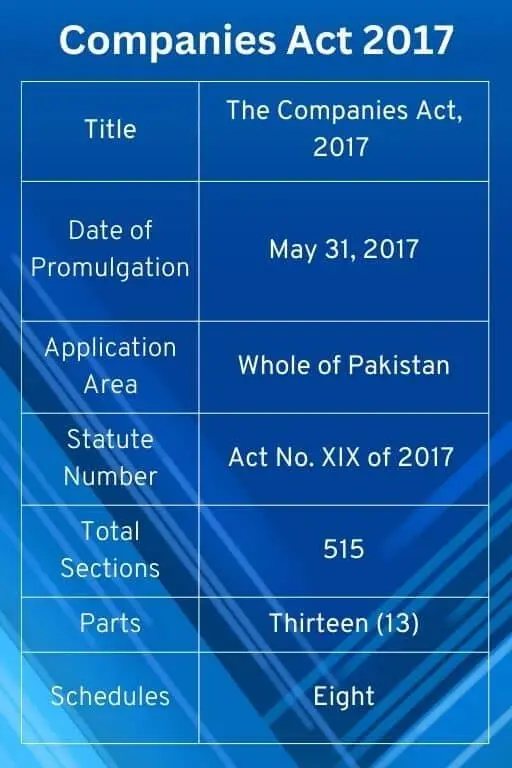


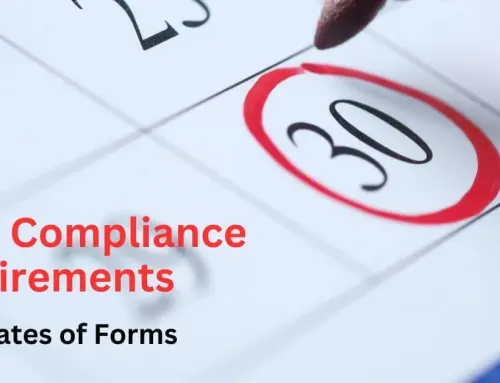






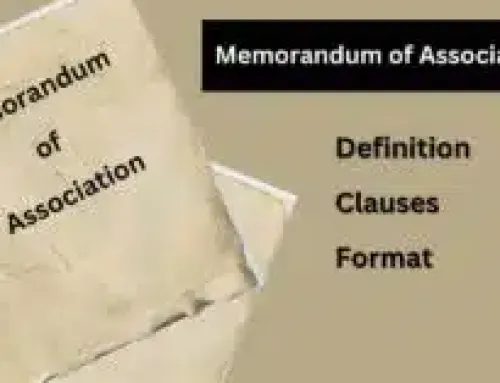










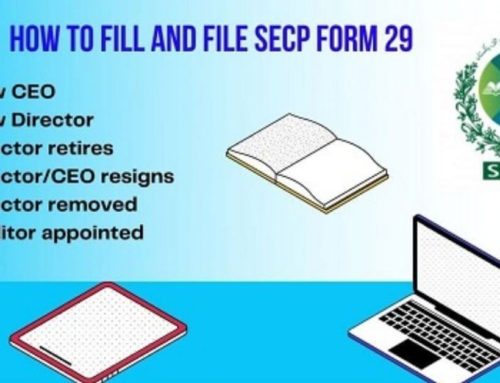




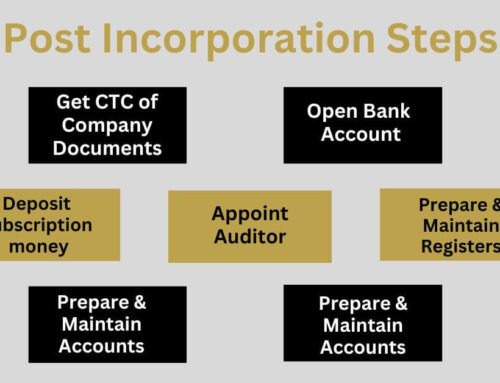

That was really informative and easy to understand. May I please know where I can find the specific topics related to Companies Act as you stated in the ending note?
Dear Hammad, thank you very much for the compliment. We keep on posting new topics on our blog. You can check whenever convenient.